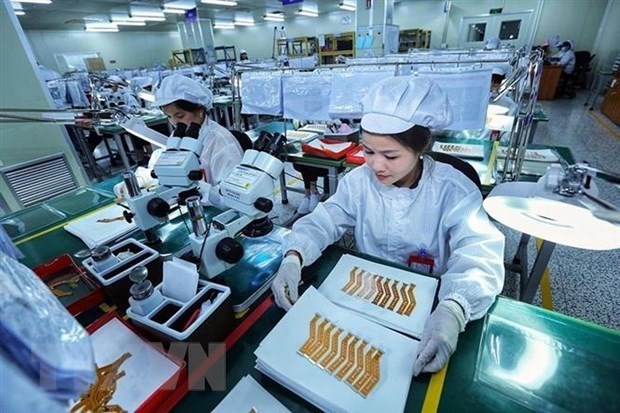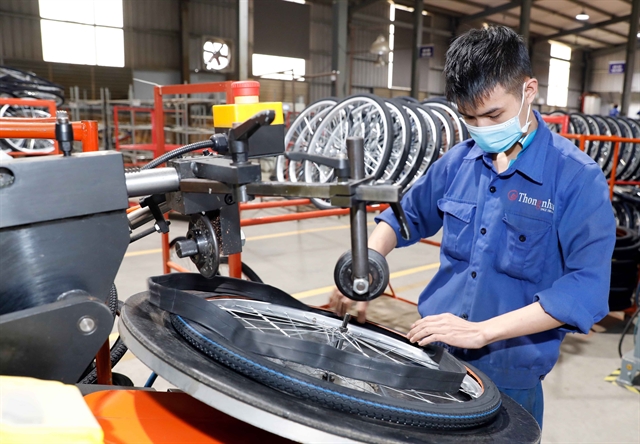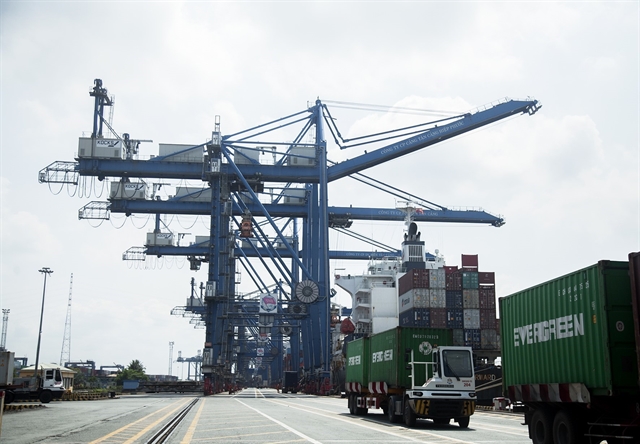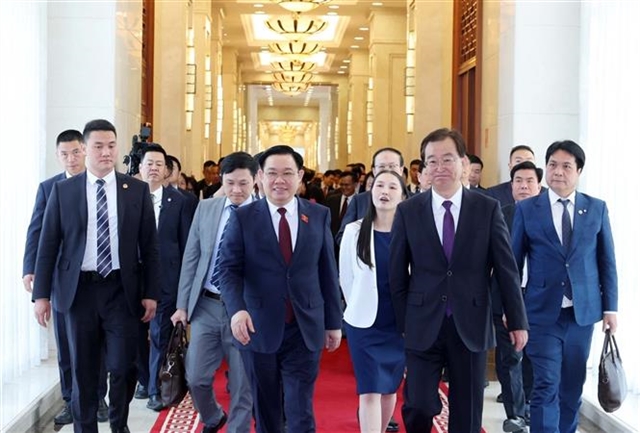 Economy
Economy

Truong Bomi (Nguyễn Xuân Trường), CEO of AhaMove, a motorbike-based start-up using technology for delivery services, and Phan Bá Mạnh, CEO of Anvui, a start-up that provides management solutions for inter-provincial bus services companies, spoke to Việt Nam News reporter Nguyễn Linh Anh about the opportunities of local start-ups in applying smart mobility solutions to Việt
 |
| CEO of Anvui Phan Bá Mạnh. |
HÀ NỘI — According to the Việt Nam Logistics Association, logistical costs are equal to around 20-25 per cent of Việt
This presents a challenge to the country’s economic growth. To tackle the problem as well as to take advantage of the opportunity to make profit, many market players, both foreign giants and local start-ups, are eagerly introducing new business models inspired by the sharing economy and new technologies, ushering in an exciting new age in transportation: the era of smart mobility
Truong Bomi (Nguyễn Xuân Trường), CEO of AhaMove, a motorbike-based start-up using technology for delivery services, and Phan Bá Mạnh, CEO of Anvui, a start-up that provides management solutions for inter-provincial bus services companies, spoke to Việt Nam News reporter Nguyễn Linh Anh about the opportunities of local start-ups in applying smart mobility solutions to Việt
Can you define the phrase “smart mobility”?
Phan Bá Mạnh:
In the transport sector, the word “smart” means less waste. Smart mobility means using technology-based and data-driven solutions to help the mobility ecosystem achieve goals such as higher productivity, lower congestion, fewer traffic accidents, better air quality, and a smaller urban footprint for parking.
In our country, there are some common blunders still found in transportation. One of them is poor transport infrastructure, manifested in the lack of public transport and the overload of personal vehicles in major cities. In Việt
Another problem is that we have yet to optimise the travel distance linking different points in the current dense traffic network, which requires a very large and accurate database and an efficient information analysis process. Only smart mobility, with the application of information technology, can thoroughly help us solve these problems.
Truong Bomi:
In my opinion, smart mobility relates to how we optimise the potential of traffic-related activities. With a great deal of transport demand, the important thing is how to travel with the lowest cost, the shortest route and the fastest time.
For example, in the delivery segment, among many companies providing shipping services, more than two thirds trips return empty after delivery, this adds significant waste to a sector that is in need of change. I believe technology is the key solution to solving these challenges, helping to connect and optimise to bring value to drivers and reduce the cost for consumers.
How do your solutions help tackle the problems the Vietnamese transport sector is facing?
Phan Bá Mạnh:
My company, Anvui, was developed with the aim of exploiting the segment of providing management solutions for transportation companies operating long bus lines travelling between provinces nationwide.
Out of 98 per cent of bus companies that are privately owned, 80 per cent of them have owners who lack management experience corporate governance skills. They do not know how to optimally operate the available resources. Anvui saw the demand for such skills and offered them comprehensive management application integrating websites, ticket booking software, apps for drivers and apps for passengers.
 |
| CEO of AhaMove Truong Bomi |
Truong Bomi:
AhaMove, an on-demand delivery service, was founded with the mission to address the inefficiency and high costs faced by consumers. Similar to Uber, AhaMove serves as a platform connecting suppliers, drivers and consumers.
Hundreds of drivers said they find it hard to find customers. Many of them drive for tens of years, and they only rely on 10-15 contacts from small shop owners for their business. And often, they don’t have any orders for several days.
These problems created an opportunity for AhaMove to work on a technology-based solution helping combine separate orders of different shops, meaning one driver would deliver more than one batch to different locations if they share a similar route. This helps reduce the number of vehicles on the road, increase efficiency and lower the price for customers as well as increase the driver’s income.
Foreign companies are very aggressive in the fight of offering smart mobility solutions, is there any chance for local start ups to win the game?
Phan Bá Mạnh:
According to statistics from the Việt Nam Logistics Service Association, there are more than 1,300 logistics enterprises operating in the country, of which, 80 per cent are domestic businesses. However, their share accounts for only 20 per cent of the market, the remaining 80 per cent belongs to foreign-invested logistics enterprises.
These figures show the fierce competition from foreign rivals that local companies have to face. However, there are still loopholes that domestic firms can take advantage of to compete against their peers.
The arrival of on-demand ride services like Uber and Grab is serving the demand for quick travel. But there are many other fields that Vietnamese start-ups can look into and develop new mobility services such as rental services, multimodal trip-planning apps and parking solutions.
In my opinion, the most esteemed company is the one that has not yet been born, before the appearance of Facebook, Yahoo was the best, before Google was born, Microsoft was the greatest. What I am trying to say is there are always opportunities for small companies to overpower bigger ones, the thing is, they must understand their strengths and weaknesses and grasp the market’s needs.
Truong Bomi:
Foreign companies are very strong competitors, the later you start, the harder it is to fight against them. But to win the final game, start-ups should focus on market demand rather than what their rivals are doing. When you look deeper into the market, you will see the opportunities that your competitors have not yet utilised.
You have to start as early and as possible, and take advantage of internal potentials and market insights. Foreign companies have some limitations compared to Vietnamese startups. They are run by global corporations, and their products have to undergo overseas testing processes, which take longer and cost more than the processes that the procedures facing domestic companies. If we can take advantage of that loophole, we can definitely compete with them.
He who is faster will win, not he who is stronger. — VNS









